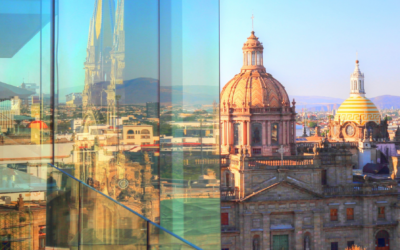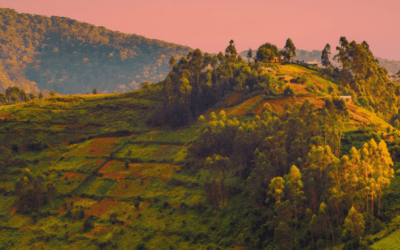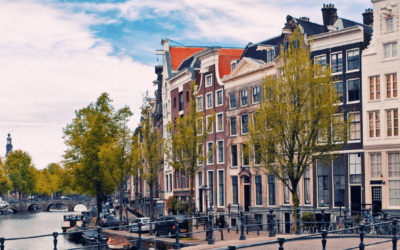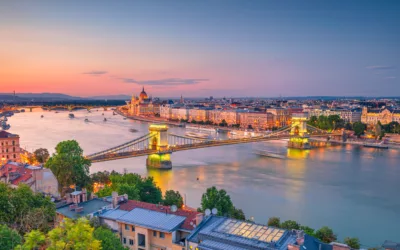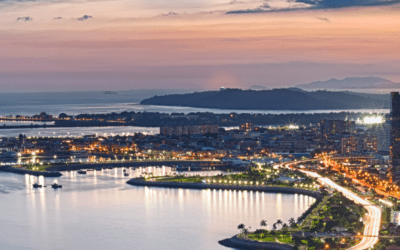Dateline: Mexico City, Mexico
The Pitcairn Islands are looking for a little help with their dwindling population.
So those innovative South Sea islanders have come up with a unique and tempting way to encourage immigration.
They’ll give you free land.
What better way for someone looking to take their first baby steps out into the world of becoming a global citizen than accepting the kindness of strangers?
Of course, as is often the case, you get what you pay for.
Weighing the costs and benefits of such a move is not a decision to be made lightly. So many options and offers appear great on paper, but in practice, the experience is overwhelming and not worth it. This is why you need a team like our crew at Nomad Capitalist who are well-seasoned experts who can provide the insights and guidance you need to choose the right second residency or citizenship.
The Pitcairn Islands consist of four separate islands, of which only the volcanic outcropping of Pitcairn is actually inhabited. While there is evidence of Polynesian tribes living on all four islands before the arrival of Portuguese and then British sailors, Pitcairn as we know it now is made up entirely of the descendants of British mutineers from 1789.
In a now infamous (thanks to the classic movie Mutiny on the Bounty) episode of cruelty-inspired treason on the high seas, acting-Lieutenant Fletcher Christian and around twenty-five HMS Bounty’s crewmen mutinied against their captain, William Bligh and set him adrift.
Some of the mutineers settled in Tahiti, where they were later caught and arrested by the crew of another British ship. But others, including Fletcher Christian, escaped British clutches by fleeing with natives to what we know now as the island of Pitcairn.
Tyranny, mutiny, sunken ships and deserted islands – with a little bit of buried treasure and an ‘X’ to mark the spot, it could be a real-life pirate story to beat the most outlandish fantasies.
The long arm of the law, or at least the British admiralty, eventually caught up with the mutineers. But by then, 1808, most of Christian Fletcher’s shipmates were dead, including him. Only one, John Adams, survived and he was left unmolested by British law.
Descendants of the mutineers and the Tahitians who fled to Pitcairn with them remained on the island, reaching a peak of around 250 in the 1930s.
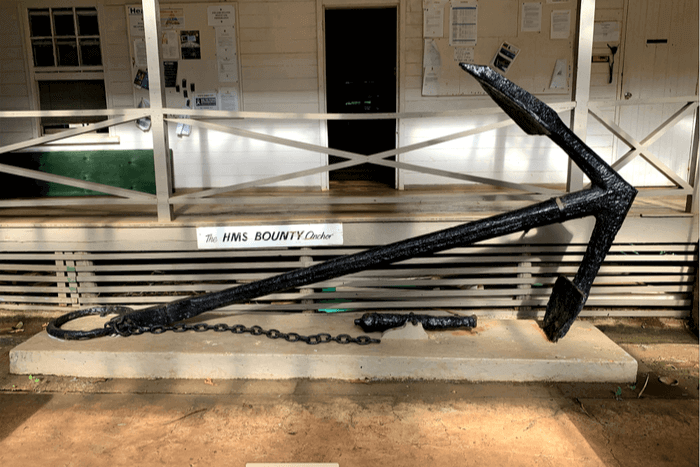
Since the 1940s and the outbreak of World War Two, the island’s population has plummeted, at least partly because many young men left to join the British military. Wanderlust took them and they never returned. Today, the island is home to just around 50 remaining residents.
And those 50 residents of Pitcairn Island aren’t getting any younger.
A 2014 report showed a grand total of 7 people between the ages of 18 and 40 living on the island. It is projected that by 2045, if things do not improve, only three working-age people will remain, with the rest of the population very old. Re-population is starting to look like the only way to keep the capital, Adamstown, from turning into a ghost town.
So far, however, the offer of free land hasn’t had many takers. Close to 700 people reach out to Pitcairn for information each year, but no one has actually gone through the process of settling there.
So, what exactly does Pitcairn’s offer mean for you? Most importantly, is Pitcairn a place where you could grow your wealth, live the lifestyle you want and go where you’re treated best?
Pitcairn Island – The Benefits
If the idea of moving to the world’s most remote island is something you dream about, then the Pitcairn Islands’ offer of free land might be right for you.
Remember, you’ll be more isolated from the world than Napoleon in exile.
The islands are in the absolute middle of nowhere, situated in the South Pacific, with the closest lands being Mangareva Island and Easter Island (yes, the one with the statues). The nearest large nation to the tiny remote island is New Zealand to the southwest.
Pitcairn Island is a beautiful little place, partly because of its remoteness but also because of government protection. The Pitcairn Islands Marine Reserve was established to preserve the pristine condition of the ocean surrounding the island chain. It takes in the entire exclusive economic zone surrounding the island. This allows the island chain to be a breeding place for humpback whales that come every winter.
The weather is warm year-round, perfect for long walks through the beaches and trees. During the summer/rainy season of November through March, temperatures hover between 25-35 °C, with humidity levels often above 95%. During the winter, temperatures drop between 17-25°C.
If you want to get off Pitcairn and explore, the other islands in the chain could be fascinating. Henderson Island, for example, is a UNESCO World Heritage Site preserved for scientific research and nothing else. If you like birdwatching, tripping around the four islands will allow you to see a few species of birds unique to the area.
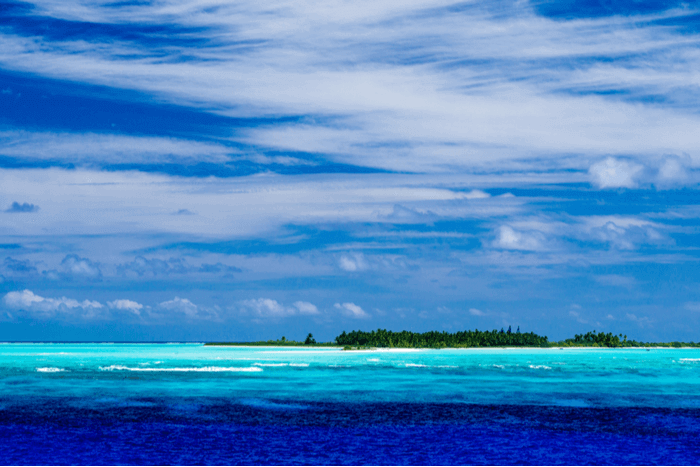
If you’re worried about a cultural or language barrier, Pitcairn’s British heritage makes it accessible to most Westerners and all English speakers. The island’s official language, Pitkern, is a Creole language rooted in Tahitian and 18th-century English. However, modern English is taught at the island’s only school.
Citizens don’t have issues gaining access to the services on the island, few as they are. More on that later.
Living in Pitcairn carries several tax benefits and simplifies proving your tax residency thanks to its remote location.
What does that actually mean? Basically, every nation has its own criteria when determining the taxation status of its citizens and residents. If you’re living a nomadic lifestyle, you will want to establish your tax home on Pitcairn and claim a near-zero taxation rate, which the island nation offers its residents. If one of your goals is to live as a zero-tax citizen, Pitcairn’s a good choice. The island nation requires islanders to pay a minimal land tax, but aside from that, you won’t have to pay anything else in taxes.
Apart from the tax benefits, beautiful natural landscapes and free land, there aren’t many other benefits for choosing to settle on the Pitcairn Islands, depending on how you view being isolated from the rest of the world and how you and your family will manage being islanders. But if isolation does sound splendid to you or we’ve piqued your interest, then check out the application process below to claim their offer.
The Application Process
Applying for land on Pitcairn is pretty straightforward, although it’s not really free. Fees and deposits are required, which can be a bit of a turn-off for some applicants who believe they’ll simply be given a deed and welcomed to the island.
There aren’t many requirements, making the process simple and not overly bureaucratic. Start by filling out and completing the online application, which costs NZ$500 to complete and file.
After you submit your application and the government approves it, they will require that you spend six months residing on the island before giving you the land. That six-month period helps the applicant and the government determine if the applicant is ready for life on Pitcairn.
There are no specific requirements for this period, and you can choose to use the time however you like as long as you’re residing on the island.
It’s not like they have a St Regus or some other hotel you can check into, so there aren’t many options to choose from when planning your six-month period.
If you do last six months, then upon acquiring your land, it’s best to start planning your home and seeking out a contractor to do the work. While hiring a contractor from New Zealand is always an option, it is cheaper to hire Pitcairn’s local, experienced builder to do the job.
Staying local will save you a few extra hundred thousand dollars in importing a labour force but will mean keeping construction simple.
Building your new home on Pitcairn gets you a residence permit that’s good for two years. You won’t have to go through the application process again when the residence expires, but your application will be reviewed before granting you the renewal. The key is to prove you intend to reside on the islands permanently.
After finalising your application, you’ll be issued a temporary lease to the land, which becomes permanent upon approval.
And that’s it. Congrats. You might be the first successful applicant in Pitcairn’s history.
The Problems with Life on Pitcairn Island
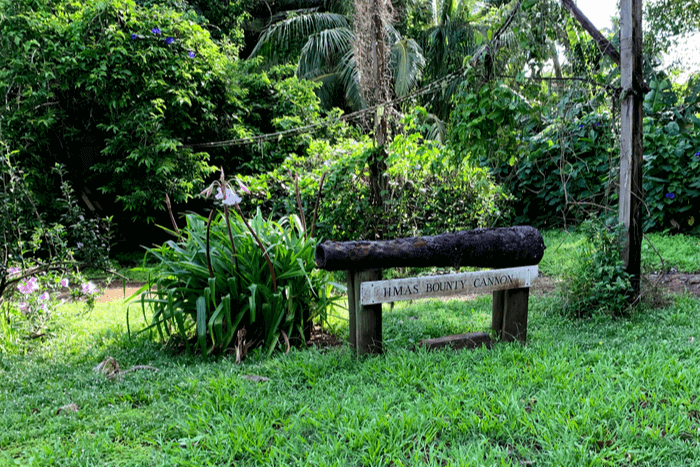
Pitcairn isn’t going to be a good option for most people when it comes to going where you’re treated best.
At Nomad Capitalist, we want our clients and readers to develop more financial freedom, become global citizens and create wealth. In one way or another, all three of these goals are hindered by choosing Pitcairn as a part of your personal financial strategy and nomadic lifestyle.
As Pitcairn’s immigration website states, ‘Life on Pitcairn will not be for everyone’.
The government of this little volcanic outcropping is looking for a particular kind of individual. They want to attract young, able-bodied couples with children who can help them build up and maintain the island and its population. They need people who will be able to handle the physical and emotional challenges that come with relocating to a tiny island on top of a fault line in the middle of the Pacific.
Unlike other countries offering land, residency or citizenship, they aren’t looking for investors or successful entrepreneurs to help build their economies.
They’re seeking people with useful skills that add value and help meet the nation’s deficiencies. They want doctors, nurses, construction workers, engineers and other skilled professionals.
Becoming a vital part of society and helping build the nation’s infrastructure might sound appealing. But this comes with a lot of sacrifice. Many of us get accustomed to certain lifestyle standards, like having a cafe on every corner or being able to visit the ER for the slightest discomfort. This won’t be the case if you choose to live in this remote island nation.
Lifestyle and Services
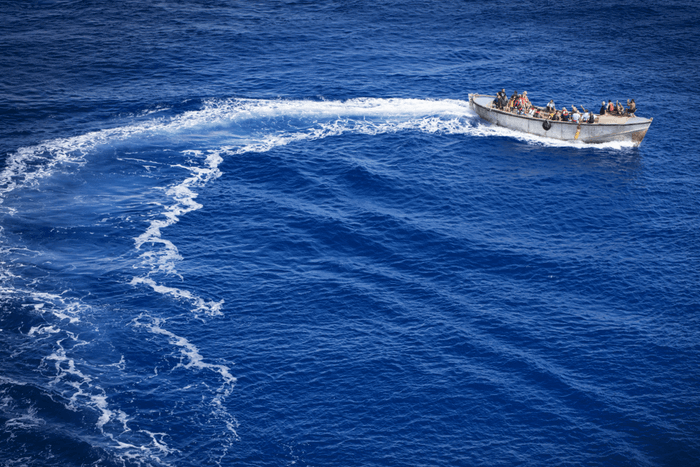
Living in Pitcairn is challenging.
The government is looking for young, able-bodied couples because of the amount of work and maintenance the island needs to function. The island’s population is entirely responsible for maintaining the little infrastructure that exists, repairing homes and buildings after storms, working the land and serving on fishing ships.
As an island resident, you must provide voluntary labour each year wherever Pitcairn needs it the most. This isn’t a tax haven where you retire in luxury.
It’s a physically demanding place to live for people looking for something different.
The one ship designated to make the two-day trip between New Zealand and the island only does so every few months. Which means that once you’re there, you’re stuck. The same goes for mail, food and anything else that can’t be produced on the island.
There are other tropical paradises with far superior travel methods and accessibility, meaning you won’t feel stranded as you would on Pitcairn.
That being said, living on Pitcairn doesn’t cut you off entirely from the world. The island has a cell tower that provides cell service to the island. You can access this service by buying a plan in New Zealand before arriving on the island.
Islanders will also receive internet service by satellite. Adamstown has limited access to the bandwidth provided by the satellite service since most of it is used by the research station near the island.
The island has limited access to healthcare and health services. A doctor is always contracted out to the island by the British government who handles everyday medical issues. Any severe or life-threatening matters must be treated on the nearest mainland, New Zealand. This means people with severe and pre-existing medical conditions probably shouldn’t make this their forever home.
There’s a school there that uses the same curriculum as New Zealand, but there are some serious issues to consider before moving your family to Pitcairn. For those hoping to move to the island with small children, it’s important to note there have been several cases of child abuse, particularly sexual child abuse, committed by men in the country.
These offences led to the creation of a policy that potential immigrants need to obtain special permission to bring over children younger than 16 years old. While the policy helps protect the island’s children, it doesn’t help the island achieve its goal of combatting under-population.
Pitcairn and British Citizenship
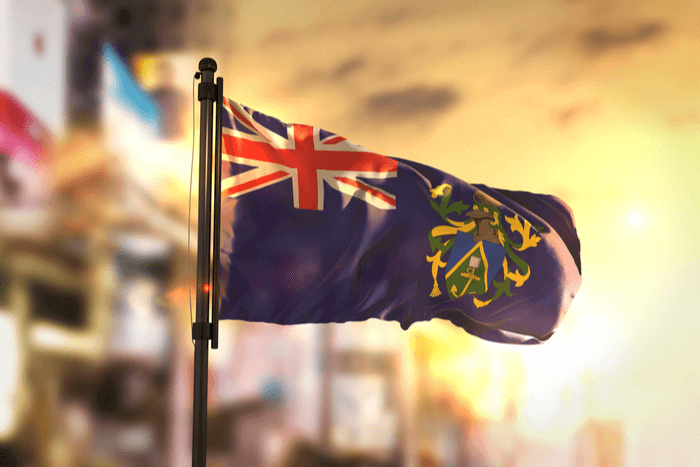
Part of developing an international strategy is finding places where you can benefit from obtaining a second residency or citizenship. A second citizenship can help you protect your assets, decrease your tax burden and protect you from political instability if things become difficult back home.
If you have a second citizenship, you always have somewhere else to go.
For this reason, some people look at the offer of free land as a means of getting that second residency and even a UK passport. While this is technically possible, there are a lot of caveats.
Pitcairn is one of several areas of the world known as British Overseas Territories. Citizens of these countries are British citizens, but they do not have the same rights as someone born or naturalised in the UK.
As a Pitcairn citizen, you can obtain a British passport and receive assistance and protection from all UK consulates and diplomatic posts. However, your access to Britain will be limited. You will still be subject to immigration controls when you enter the UK and will not automatically have the right to live or work in the UK.
The EU will not recognise you as a UK national, either. And though you may have similar access to visa-free travel worldwide, some countries only grant visa-free access to a British Overseas Territories Citizen (BOTC) if their passport has an endorsement stating their right of abode in the UK. Citizens of the Pitcairn Islands do not have this endorsement.
However, as a BOTC, you could technically become a citizen of the UK through another process. However, the requirements to go from one citizenship to another are still tricky. These requirements only get more difficult in a place like Pitcairn, where a poorly-timed tropical storm can leave you trapped in New Zealand long enough to disqualify your application and start the years-long waiting time over again.
It’s a lot of work and risk to get a passport that might not be worth it in the end.
By our standards, a British passport isn’t as desirable as many believe. Our Nomad Passport Index measures a passport’s value using a unique formula. Unlike other indexes that look purely at the visa-free travel each passport provides, we’ve added international taxation, perception, dual citizenship and personal freedom to determine which citizenships and passports grant the best opportunities for people looking to diversify their lives.
Our most recent report ranked the UK 27th in the world, with the country’s high taxes being the most significant downside. So, even if the Pitcairn Islands could offer you a straight path toward British citizenship, there are better and more accessible options.
But what about a British Overseas Territories passport? A BOTC passport has similar travel privileges as a UK passport without the taxes that would come with it. While there may be situations where this could conceivably be a good option, residency in Pitcairn doesn’t give you a chance for citizenship.
Pitcairn just doesn’t offer citizenship as an option for newcomers. Throughout the island’s history, only one outsider couple has been able to obtain citizenship. Since this happened in 2005 and no one has immigrated since then, you could potentially become another exception to the rule.
However, considering the potential monetary and personal expense, you may think twice about whether this option is worth the time and costs.
Pitcairn and Wealth Creation
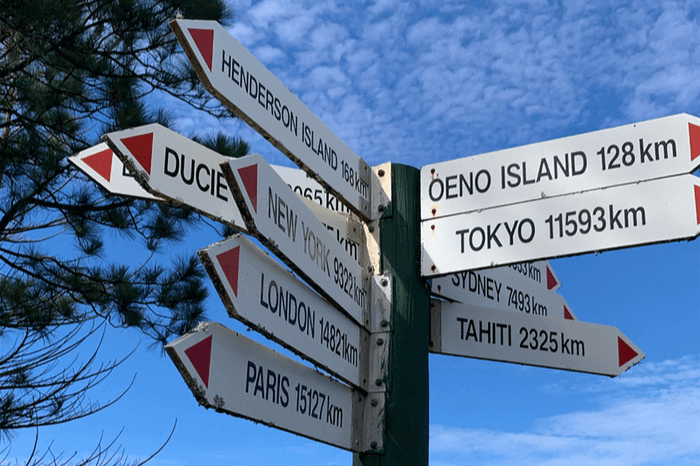
With how little there is in the way of services in Pitcairn, it shouldn’t surprise you that you won’t find a branch of an international bank there. It’s not a question of whether the island is a bad option for running an offshore company or bank account. In many ways, it is not an option at all. The infrastructure just isn’t in place.
On the other hand, countries like Georgia, Mongolia, Belize and even the Cayman Islands have excellent services that will allow you to legally keep more of your wealth and grow your business. Setting up bank accounts in these places will allow you to diversify your life and protect your assets in case of an emergency.
Of course, remote banking is an option, even if it isn’t a great option. Setting up a bank account from your new porch overlooking the ocean surrounding Pitcairn may sound like a great idea, but even remote banks require you to complete a lot of paperwork and send sensitive documents.
Convenient banking isn’t convenient when you’re waiting three months to send a letter.
The same problems surface when you start looking at running an offshore company. There are all kinds of benefits to running a company outside of your home country. Many of our clients have found new opportunities that have allowed them to make real and sustainable growth.
You’ll have a simpler time getting those benefits if you go somewhere besides Pitcairn.
And in some of these countries, your business and investment will earn you a second residency or citizenship with more value. Places like Malta, Panama and several countries in the Caribbean allow you to obtain residency or citizenship through investments in local businesses and real estate.
If you want to create wealth, you’ll find better options, including fast-developing regions like Eastern Europe.
Who Should Go to Pitcairn?
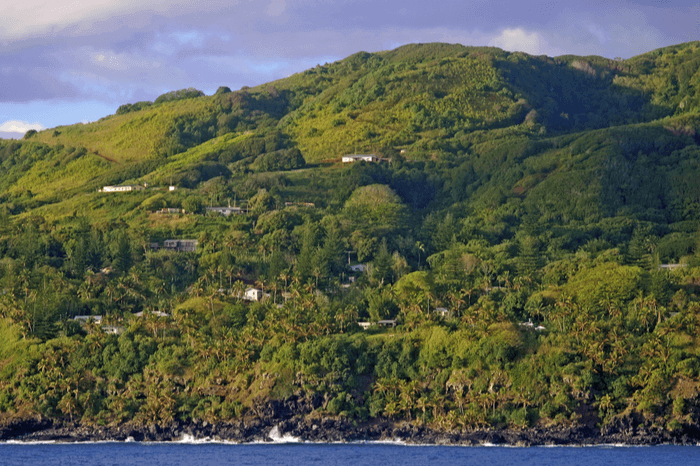
Realistically, the type of person who will want to seriously consider Pitcairn is someone who isn’t concerned about the financial aspect of becoming a global citizen.
The island should be an option for someone looking to get away from (quite literally) everything.
A young nomad – who finds the idea of building a society in a remote location adventurous – will probably feel fulfilled in Pitcairn. However, they’ll also need to have enough money to support themselves for a while.
There aren’t many jobs on an island of 50 people and until you obtain that residency, any existing jobs aren’t open to outsiders. And, even if you finally get that residency and land that job, there are no guarantees you’ll be around long enough to benefit.
All in all, it’s not a big surprise there haven’t been many takers for Pitcairn’s free land.
If Not Pitcairn, Where?
For most of our readers, this particular offer probably isn’t the best option available. It certainly isn’t the only option available.
If you’re new to Nomad Capitalist, the terms ‘offshore’ and ‘second passport’ might bring to mind spy movies you’ve watched – bad guys moving wealth where no one can find it and mysterious dudes rifling through boxes of fake passports.
The reality is much less dark. Most Westerners have a lot to gain by legally setting up companies and bank accounts outside of their home country.
Many people get trapped in the idea of staying where they are as they dither on whether life could be better elsewhere. They put up with high tax rates and a high cost of living because they think their homeland must be the best. This just isn’t true, but it’s all most people know. They fear the unknown and dread the unfamiliar.
There are countries that are actively taking steps to make themselves more attractive to foreigners. They tax less and reduce regulations on corporations in order to bring in entrepreneurs and bolster their economy. While Pitcairn might suit a particularly young, wealthy and adventurous individual, we encourage our readers to seek the best for themselves and their families.
Consider Moving to The Caribbean
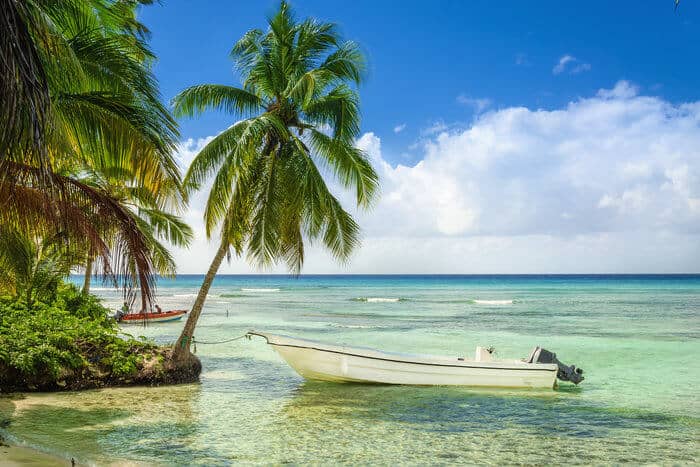
If the idea of land in a tropical paradise is what got you interested in Pitcairn, you may want to consider the Caribbean.
This area of the world is often stereotyped as a region where people go to evade taxes and set up offshore bank accounts. What doesn’t come up as often in conversation is how great the Caribbean can be for picking up a second citizenship.
Many of the islands allow you to gain citizenship through investment in real estate or business – real citizenship with a passport that allows decent travel privileges. And with a Caribbean second passport comes opportunities for personal economic growth and lower tax rates.
If you’re an entrepreneur, investor or emerging world citizen, getting a St Lucian or Dominican passport will be a much better option than looking into Pitcairn, even if it costs significantly more.
The Caribbean is a great place to begin building your passport portfolio.
Europe Provides Unique Benefits for Second Citizenship
When you ponder going offshore, the country of Georgia might not be the first that comes to mind.
But Georgia and other European countries can be great candidates for business and residency. Georgia is a fantastic place to bank, buy real estate and do business. Romania has incredibly low tax rates for small businesses. Bulgaria has a flat tax rate on personal income of 10%, the lowest in all of the European Union.
It’s a different kind of beauty from that of a remote island in the middle of the Pacific but living and doing business in and around Europe comes with all kinds of benefits and opportunities. Securing residency in the right places in Europe could mean having more income available for visiting a remote island paradise.
And, unlike Pitcairn, getting residency in a country like Andorra or Montenegro would give you access to a passport with decent travel privileges.
All this without sacrificing the conveniences of a modern lifestyle.
Southeast Asia for Tax and Lifestyle Benefits
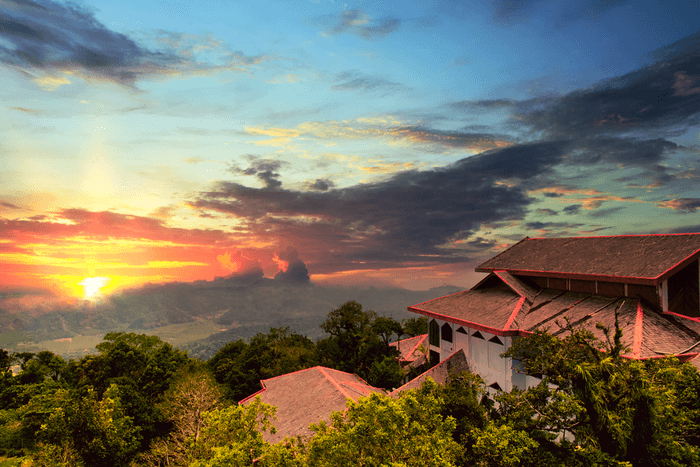
Thailand and many other Southeast Asian countries might seem like ideal locations for a vacation, but they also provide some great opportunities for designing an international lifestyle.
Living and doing business in Southeast Asia gives you access to a similar quality of life to that you might already be used to in Western countries, with fantastic food and greater personal freedom. Visas are easy to come by, and plenty of places are looking to make it easier for entrepreneurs to come and set up a business.
Because of government regulations, Penang in Malaysia is a great place to set up a physical business or remote work location. Bandung in Indonesia aspires to become Southeast Asia’s answer to Silicon Valley. Chiang Mai in Thailand is an epicentre for digital nomads looking to make a profit while going where they’re treated best.
If you’re looking for a place to invest in real estate and were tempted by the chance to turn a profit on Pitcairn’s free land, consider that Southeast Asia can be a great place for real estate investment, with the potential of making double-digit yields in Cambodia.
Don’t expect any yield from your new home in Pitcairn.
You’ll be able to find the ruggedness you may have been looking for in Pitcairn in Southeast Asia, but with efficient travel to and from the region instead of a two-day boat ride. And that ruggedness will be a choice instead of a necessity.
Overall, Southeast Asia is a much better option.
Conclusion
While the offer of free land on Pitcairn Island sounds enticing, setting up shop in the countries and regions we’ve mentioned will leave you with more money that you can use to grow and strengthen your business.
Many worldwide locations want to treat you and your business better than your home country. And, in almost all of these places, you’ll have to make fewer sacrifices to your quality of life than you would in Pitcairn. In Eastern Europe and Southeast Asia, you’ll find plenty of culturally diverse cities with all the amenities you’d expect back home.
While each situation is very different, there are plenty of options out there, so it’s best not to jump head-first into the first positive-sounding proposition. Take our advice and pass on the free land. Once you start saving on taxes and the cost of living in places like Malaysia or Montenegro, your new home will practically pay for itself.
We have helped over 1,500 clients acquire citizenship in 28 countries and can help you do the same. Apply to become a client today to get your second passport.
FAQS About Pitcairn Island
Pitcairn Island is a British overseas territory, but gaining residence and citizenship on the island does not open up Visa-free travel in Europe like holding a British passport.
The Pitcairn Islands is part of a larger group of islands that consists of four individual islands. These islands include Pitcairn Island, Henderson Island, Ducie Island and Oeno Island. However, these are not part of the same government, and Pitcairn Island operates independently of the other islands.
Pitcairn Island lacks a strong tourism industry because of its remote location and lack of basic infrastructure. If they attract skilful settlers, they may be able to bolster their tourism industry, but right now, this seems unlikely. The warm climate makes it appear like an island paradise, but tourism also requires the basics, like roads and public buildings like airports, to be successful.
People can visit the island by sailboat, but it’s certainly not recommended. It is better for visitors to take the boat from New Zealand to the island. Some people plan trips from places like Australia, but unfortunately, it entails a lot of effort for a short visit. People will have to fly to New Zealand and travel as passengers on board the only shop that goes to Pitcairn Island. Sailing to the island is the only feasible way to get to the Pitcairn Islands.





